 Riyadh, Saudi Arabia, 5 Dzulhijjah 1434/10 October 2013 (MINA) – As Saudi Arabia gears up for next week’s Hajj with scores of pilgrims set to meet at the world’s largest annual gathering, the kingdom has been preparing to make this year Hajj disease-free, amid fears about deadly MERS virus.
Riyadh, Saudi Arabia, 5 Dzulhijjah 1434/10 October 2013 (MINA) – As Saudi Arabia gears up for next week’s Hajj with scores of pilgrims set to meet at the world’s largest annual gathering, the kingdom has been preparing to make this year Hajj disease-free, amid fears about deadly MERS virus.
“They (health officials) are expected to take preventive and curative measures to keep infection, if any, under control,” Mohammed Hamzah Khosheim, deputy health minister for planning and development, Onislam quoted by Mi’raj News Agency (MINA) as reporting.
“If they have not taken, relevant doses will be given to them at the ports of entry so that they would be fortified with immunity against the respective diseases,” the deputy minister added.
Last year a total of 3.2 million faithful, including 1.75 million foreigners from 190 countries, performed the pilgrimage to Makkah.
Also Read: Turkiye Denies $393.7 Million Export Claims to Israel, Calls Reports ‘Disinformation’
This year Riyadh expects about two million, after the kingdom announced a crackdown on illegal pilgrims and imposed restrictions to cut foreigners by 20 per cent and Saudis by 50 per cent.
About 1.17 million pilgrims had already entered the Gulf state by Saturday, according to immigration officials, and more are expected before Thursday’s deadline for people to arrive before the Hajj starts.
Preparing for the largest annual gathering, the MOH has deployed health officials at 14 ports of entry via land, sea and air to monitor the entry of hajj pilgrims during the season.
Health ministry spokesman, Dr. Khalid Al-Mirghalani, said the kingdom carefully monitors developments that are taking place throughout the globe in the field of infectious diseases.
Also Read: Turkish and Iranian Presidents Meet in Azerbaijan
He said the stipulated requirements in the new circular are in line with the WHO’s requirements to control the spread of diseases in the world.
This year the kingdom has focused on diseases such as yellow fever, meningitis, seasonal influenza, polio and food poisoning.
He noted that the stipulated vaccines should be given 10 days before the date of departure to Makkah and Madinah.
So far, pilgrimage sites in Makkah and Madinah are safe from epidemics, Khosheim said.
Also Read: Iran Reaffirms Commitment to Uranium Enrichment
Khosheim said the health officials detailed at the ports of entry would ensure the pilgrims have already taken the vaccination from their ports of origin as advised before.
He added that indicators show it will be a peaceful hajj without diseases.
Pilgrims Guide
Special guidelines have been offered by the Ministry of Health to the pilgrims to avoid catching diseases during hajj rituals.
Also Read: Israel Breaks Ceasefire, Launch Deadly Strike on Lebanon
Pilgrims have also been requested to wash fruits and green leaves before consumption.
Meat and vegetables should not be washed together when preparing to cook.
Personal hygiene and hygienic cooking, storing, transporting and serving methods are important to avoid diarrhea and vomiting, food poisoning, dysentery, typhoid and cholera.
Hands should be washed before eating. Disposable shaving kits should be used.
Also Read: Prabowo, Prince MBS Call for Concrete Action to End Gaza Crisis
Wearing masks made of cloth during the performance of various hajj rituals will be very useful in preventing respiratory infections such as colds, coughs, sore throats and pneumonia.
Covering the face with a towel while sleeping in congested rooms also helps prevent respiratory infections.
Pilgrims are advised that diagnosed cases of diabetes, high blood pressure, heart disease, asthma, arthritis, migraine, epilepsy, skin diseases, psychiatric illnesses, and gastric ulcer should be properly controlled with appropriate treatment.
To prevent the spread of MERS-coronavirus in the holy cities, the MOH has requested the elderly people with chronic diseases to postpone their pilgrimage for the next season in line with the national preventive measures undertaken by the government.
Also Read: Iranian Media Highlights Threat of New War, Calls for National Unity
There are 25 hospitals in the holy cities, which include seven in Makkah, nine in Madinah, four in Mina, and four in Arafat and the King Abdullah Medical City.
There are 5,250 beds, which includes 500 ICU beds. The MOH has stored 16,000 units of blood to treat patients in these hospitals.
Muslims from around the world pour into Makkah every year to perform hajj, one of the five pillars of Islam.
Hajj consists of several ceremonies, which are meant to symbolize the essential concepts of the Islamic faith, and to commemorate the trials of Prophet Abraham and his family.
Also Read: Iranian FM Says Uranium Enrichment Technology Indestructible by Bombs
Every able-bodied adult Muslim who can financially afford the trip must perform hajj at least once in a lifetime. (T/P013/E1)
Mi’raj News Agency (MINA)
Also Read: Yemen Claims Ballistic Missile Attack on Israel’s Ben Gurion Airport






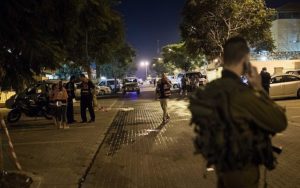
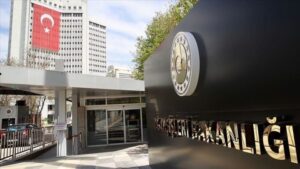
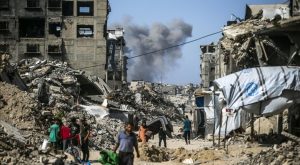
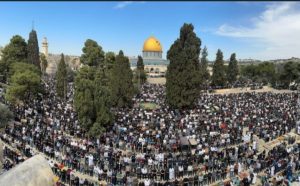

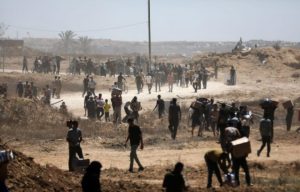
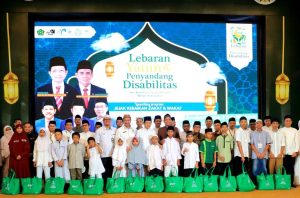






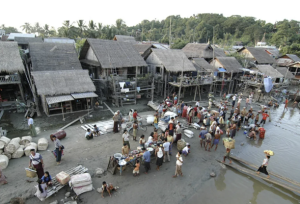

![MUI Chairman for Foreign Relations and International Cooperation, Sudarnoto Abdul Hakim (center) at the One Million Women for Gaza Press Conference entitled "Women Boycott Pro-Israel Products" held at the Swiss-Belinn Cawang Hotel, East Jakarta, Thursday (3/7/2025). [Photo: Arina/MINA]](https://en.minanews.net/wp-content/uploads/2025/07/20250703_144042-scaled-1-300x225.jpg)





 Mina Indonesia
Mina Indonesia Mina Arabic
Mina Arabic